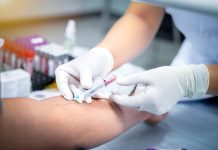Genetic wellbeing differed between people when impacted by the COVID-19 pandemic – some people were able to handle stress better than others
While most people have been impacted by the COVID-19 pandemic, researchers from the University of Groningen find that some people were able to handle the stress of the pandemic better than others – partially due to better genetic wellbeing.
Genetic wellbeing refers to our genetics, which can be a factor in determining whether or not we have good wellbeing and mental health – in this case, researchers looked at this during the COVID-19 pandemic.
“We found that it is during the first, stressful year of the pandemic that it is our nature that has gained relative impact on how we rate our lives.” – Robert Warmerdam
Quality of life and genetic wellbeing
Looking at numerous factors which influence someone’s wellbeing, such as how a person perceives their quality of life, can depend on a combination of elements that include the genes they inherited from their parents and their environment. Essentially, a mix between nature and nurture.
The COVID-19 pandemic allowed the researchers to investigate how this stressful, worldwide event interacted with a person’s genetics to affect their overall wellbeing.
The team screened the genomes of more than 27,000 participants in the Netherlands who had donated genetic material to a biobank, looking for connections between genetic variants and the participant’s responses to a series of questionnaires about lifestyle and mental and physical health given over ten months, beginning in March 2020.
Social isolation impacts the results of wellbeing
As the pandemic wore on, genetic tendency had an increasingly powerful influence on how those people perceived their quality of life, potentially due to the social isolation required by strict COVID-19 rules and restrictions on travel and meeting with friends and family.
Overall, the findings demonstrated that the contribution of genetics to complex traits like wellbeing can change over time, and no two people handled the stress of the COVID-19 pandemic the same but some individuals had a genetic tendency toward better wellbeing than others during the pandemic.
Fellow author Robert Warmerdam stated: “The COVID-19 pandemic has been a unique opportunity to investigate the impact of genetics on wellbeing in a time wherein we had to socially isolate ourselves.
“We found that it is during the first, stressful year of the pandemic that it is our nature that has gained relative impact on how we rate our lives.”











